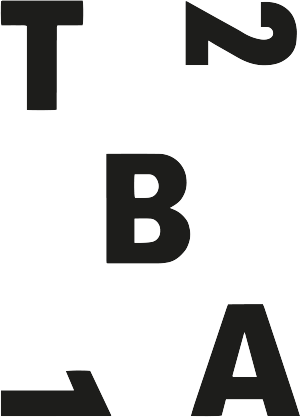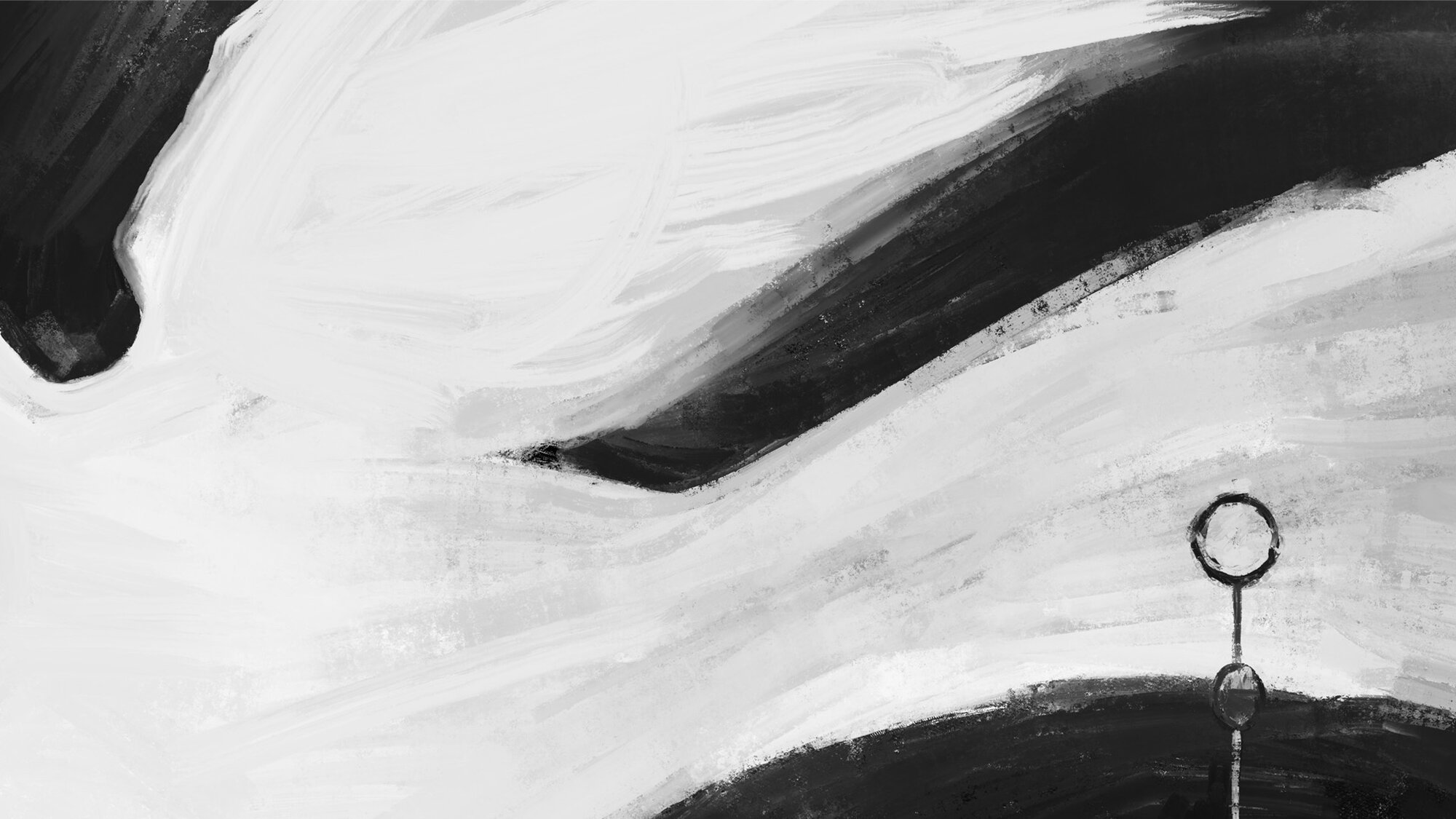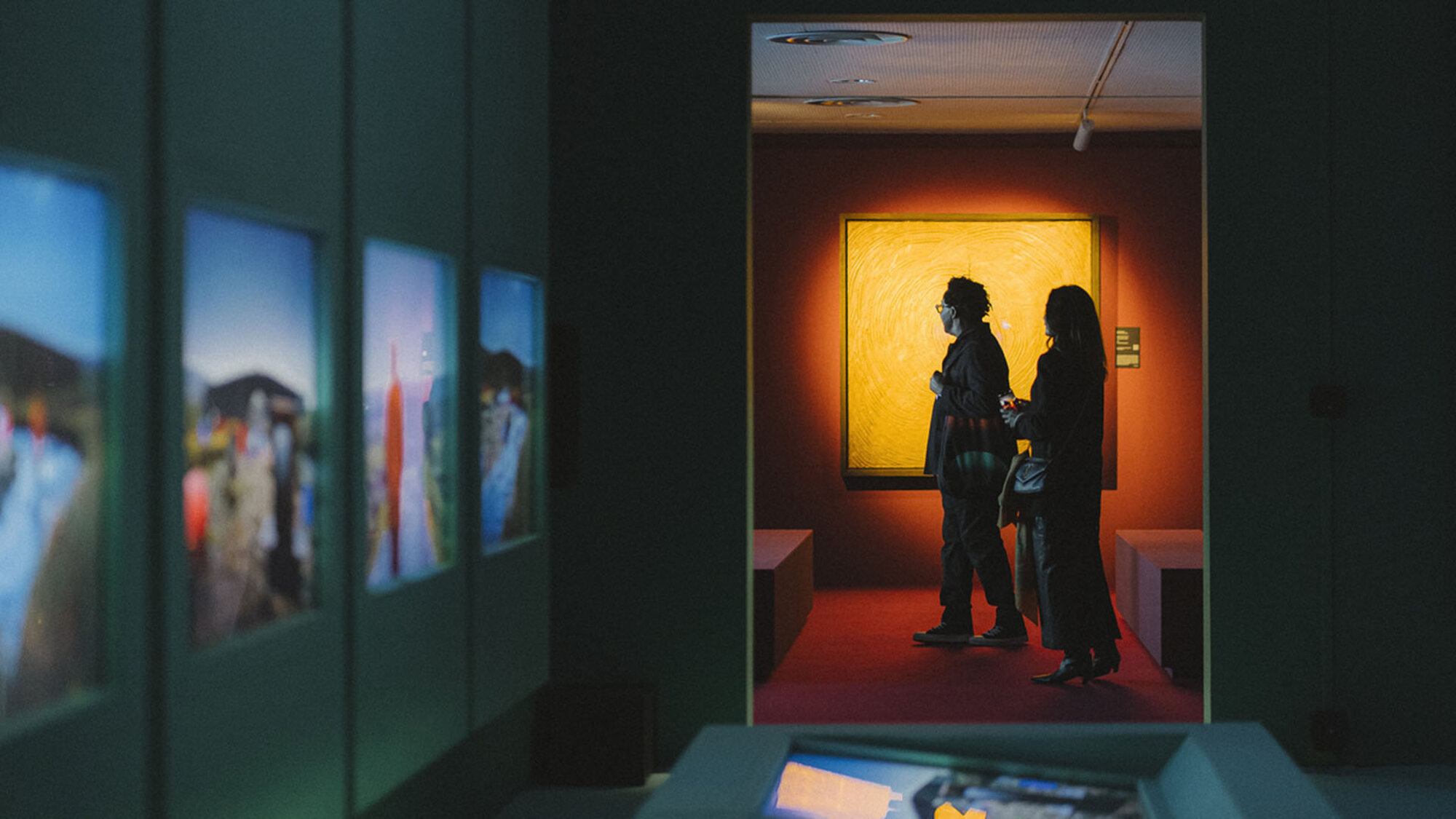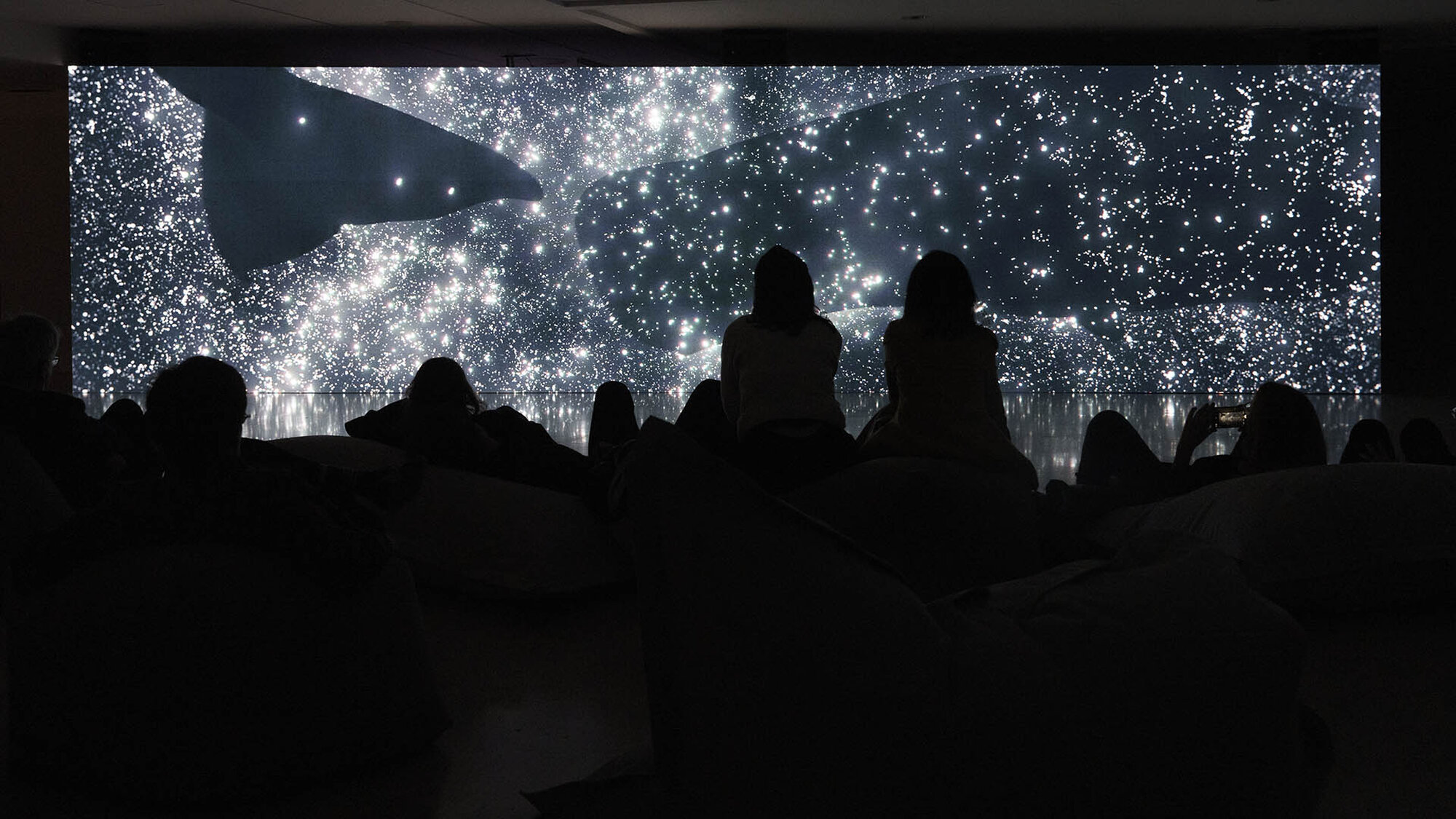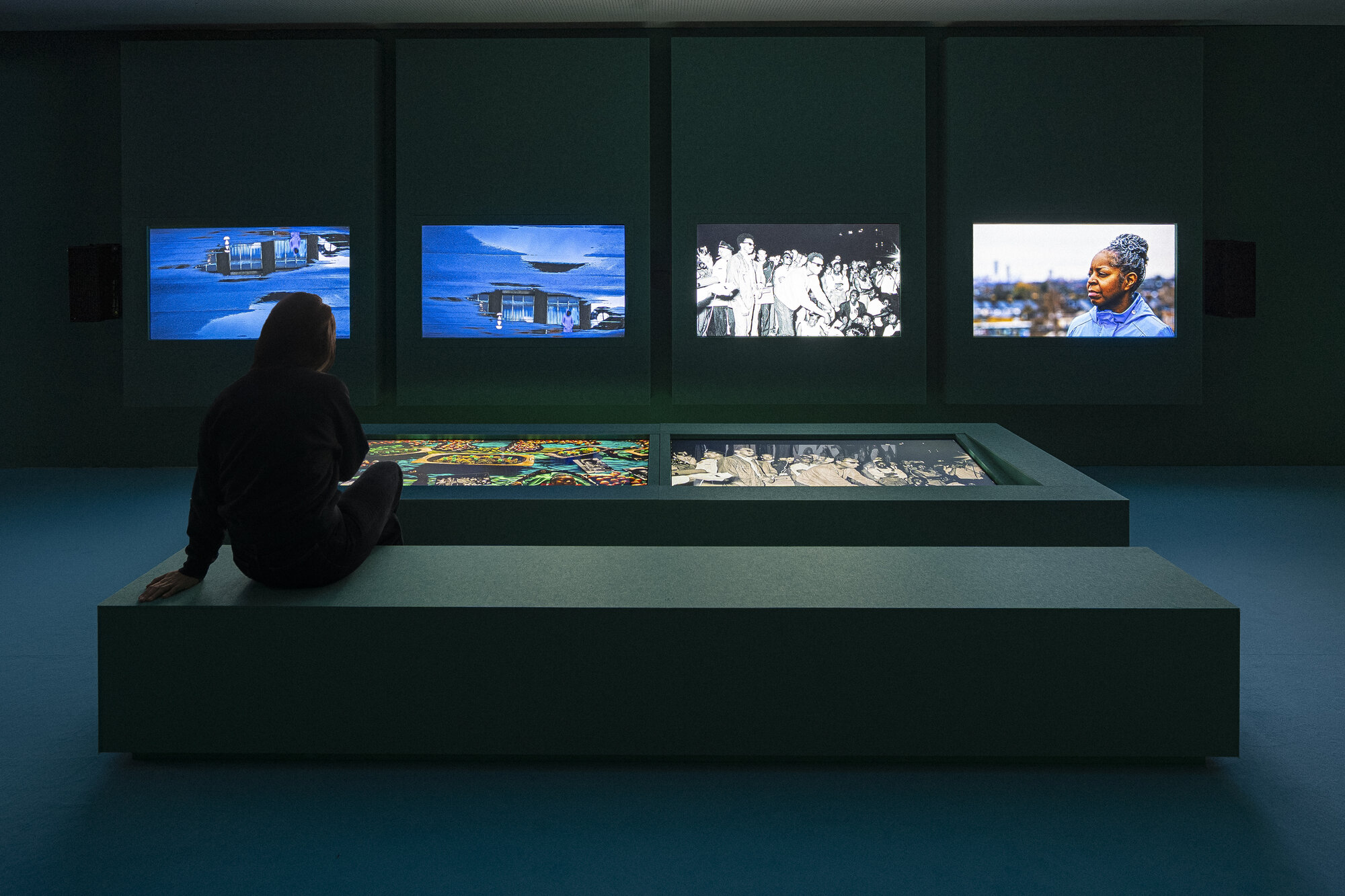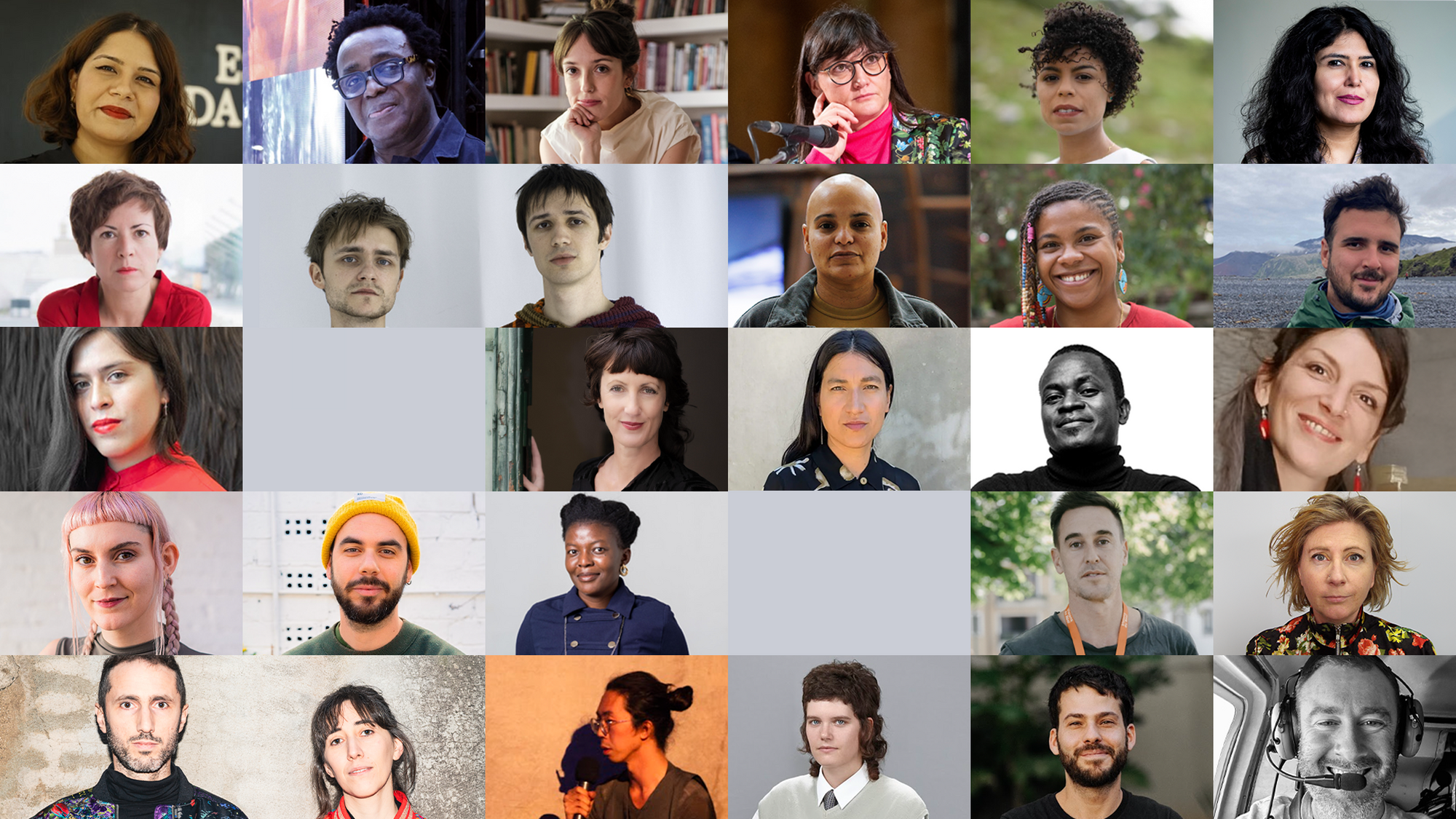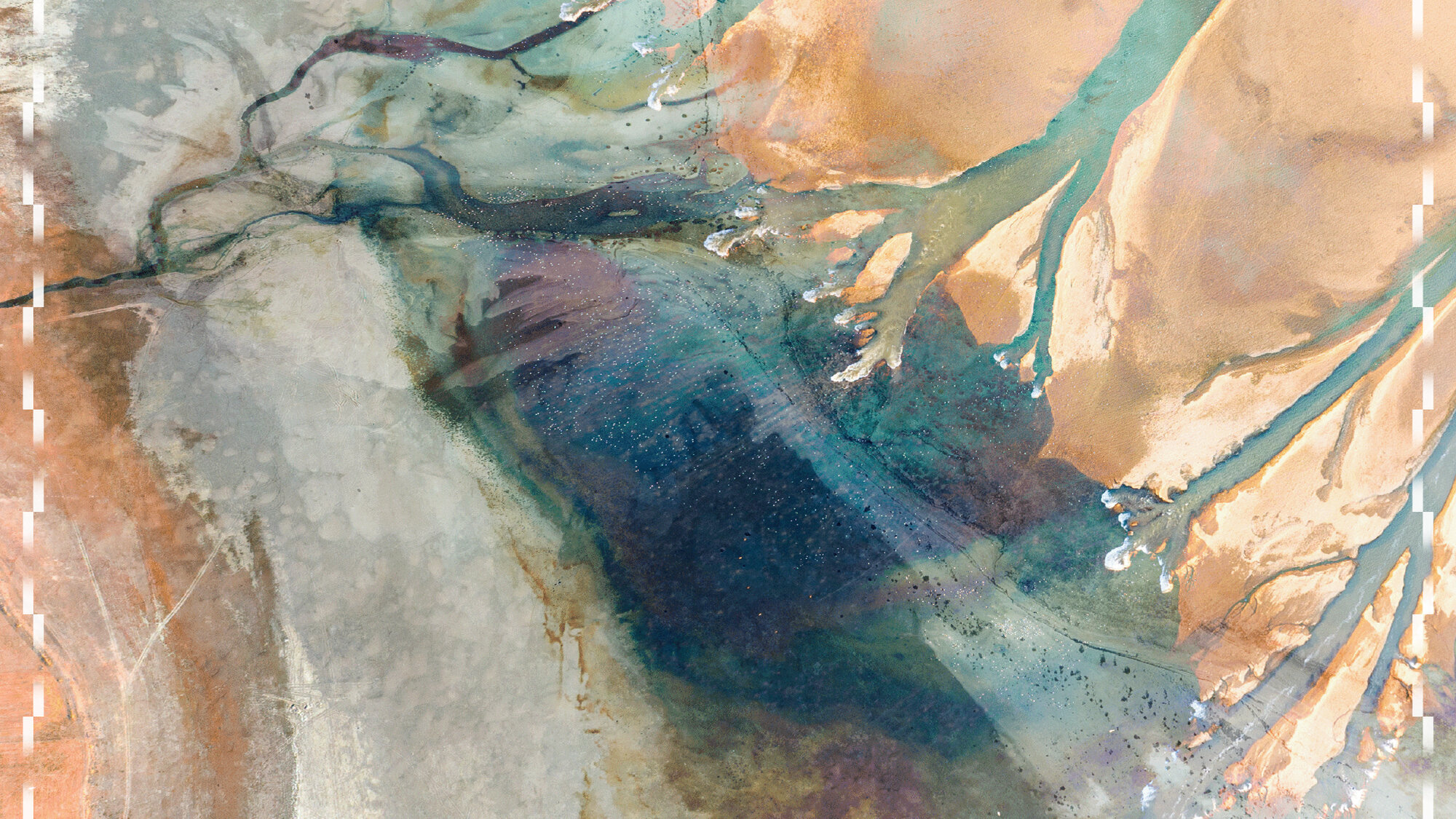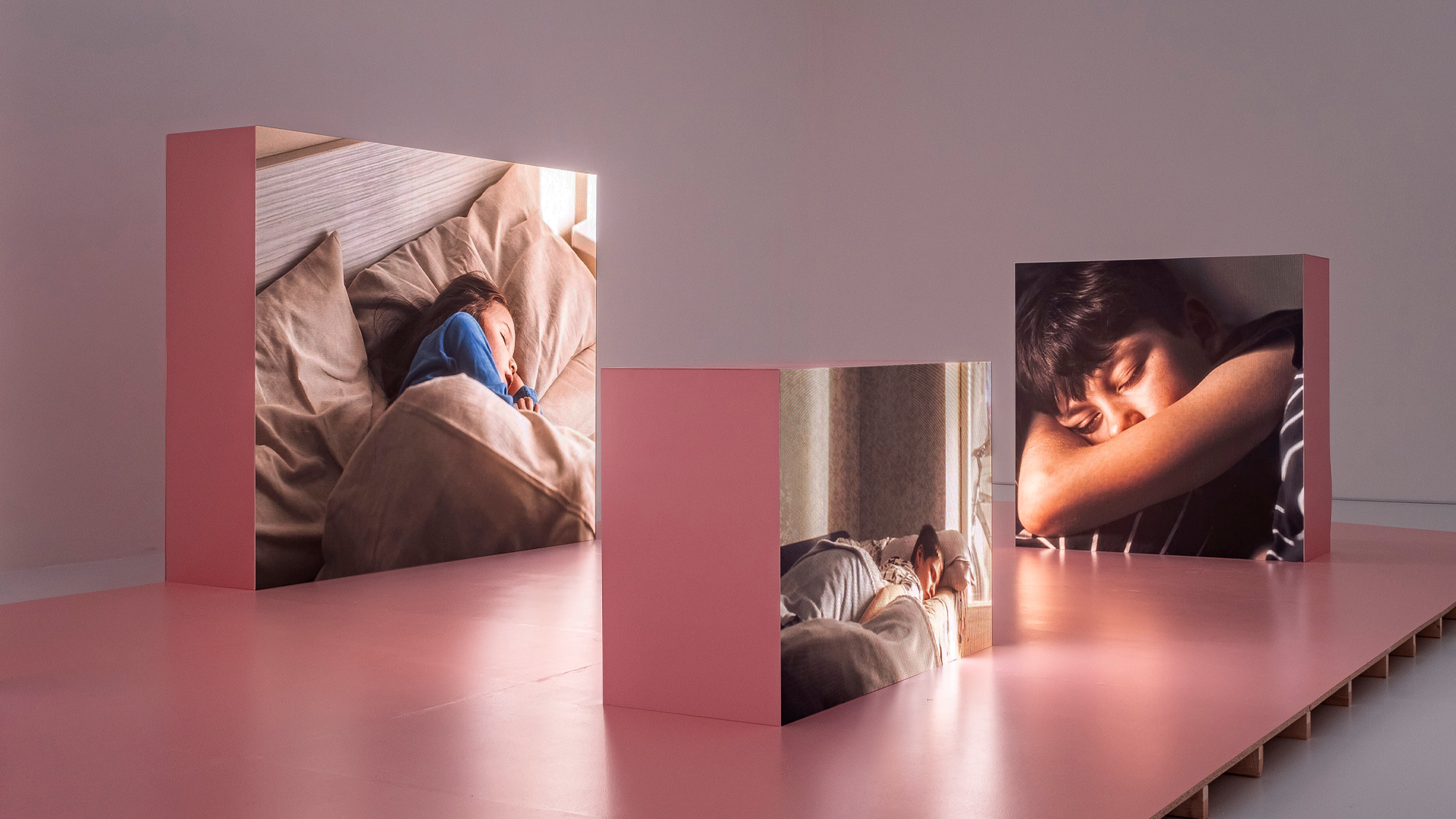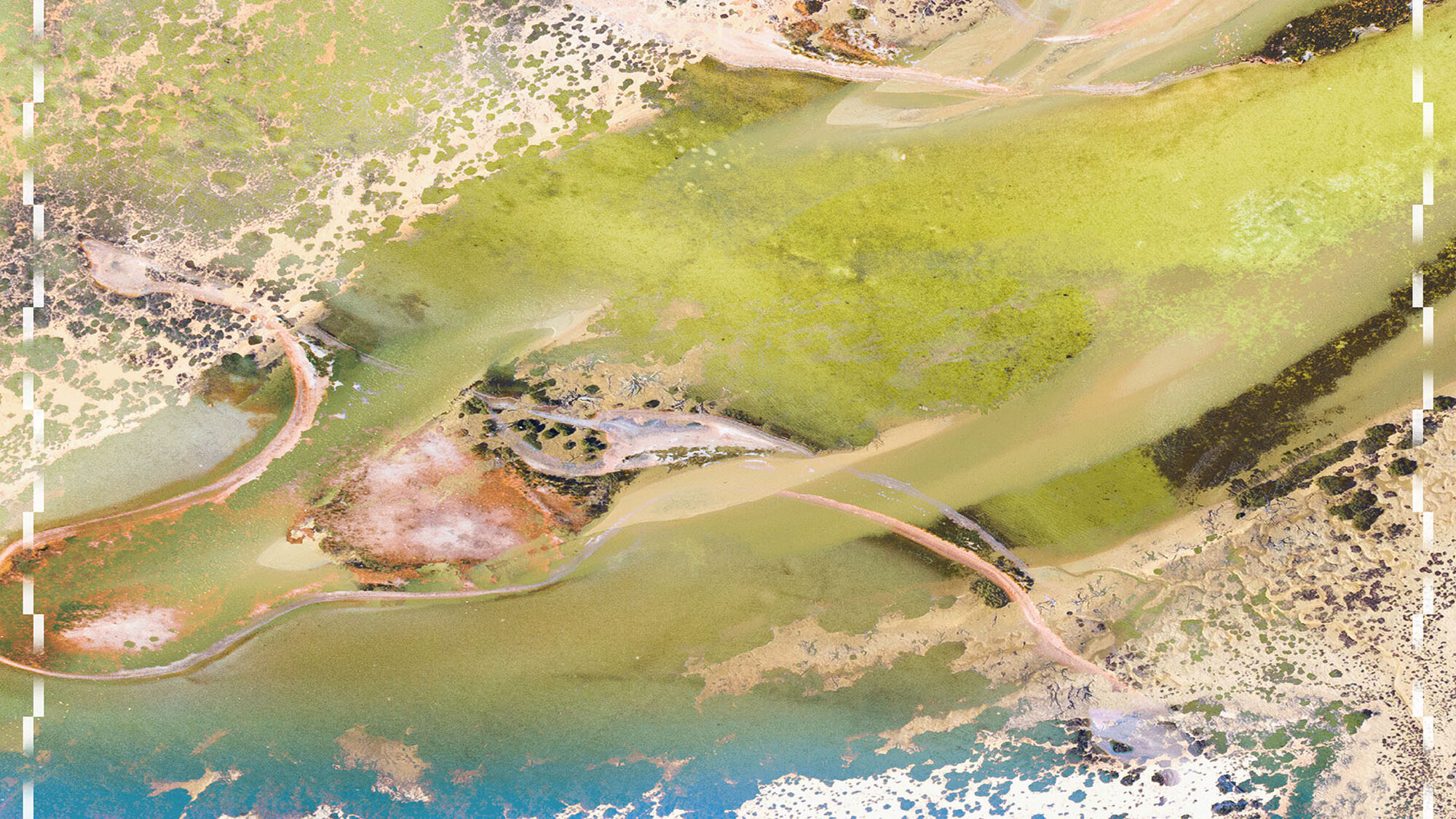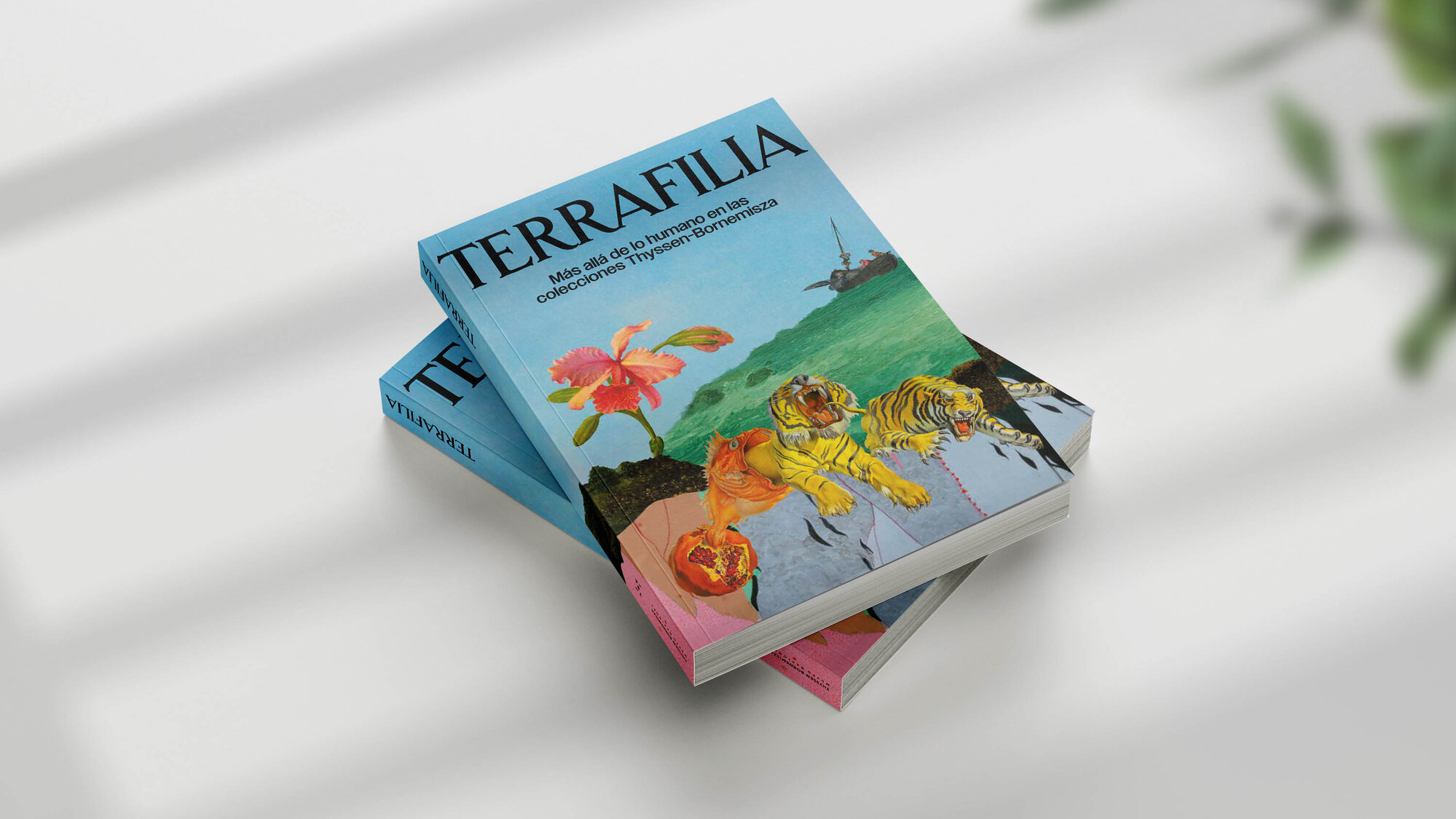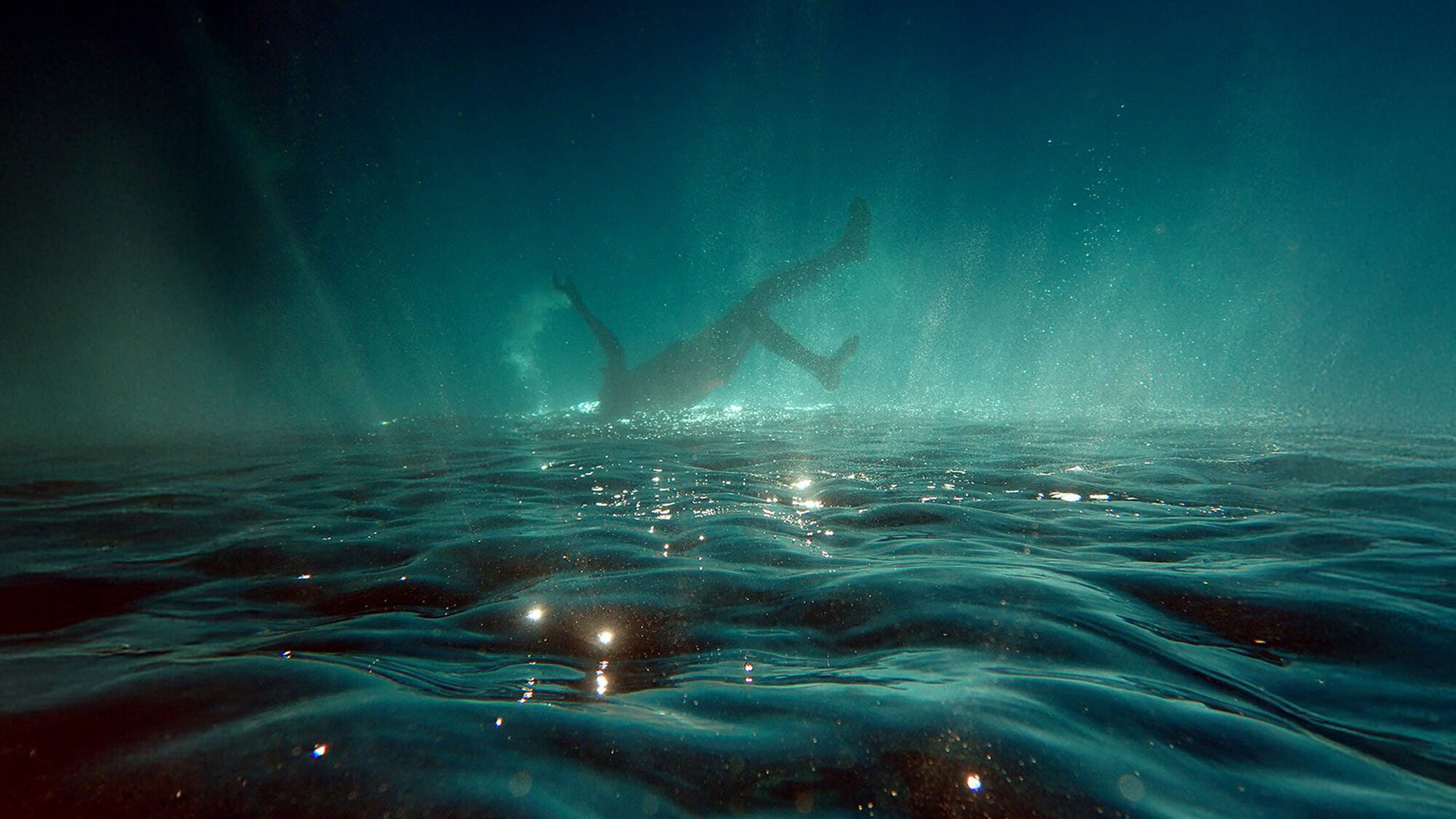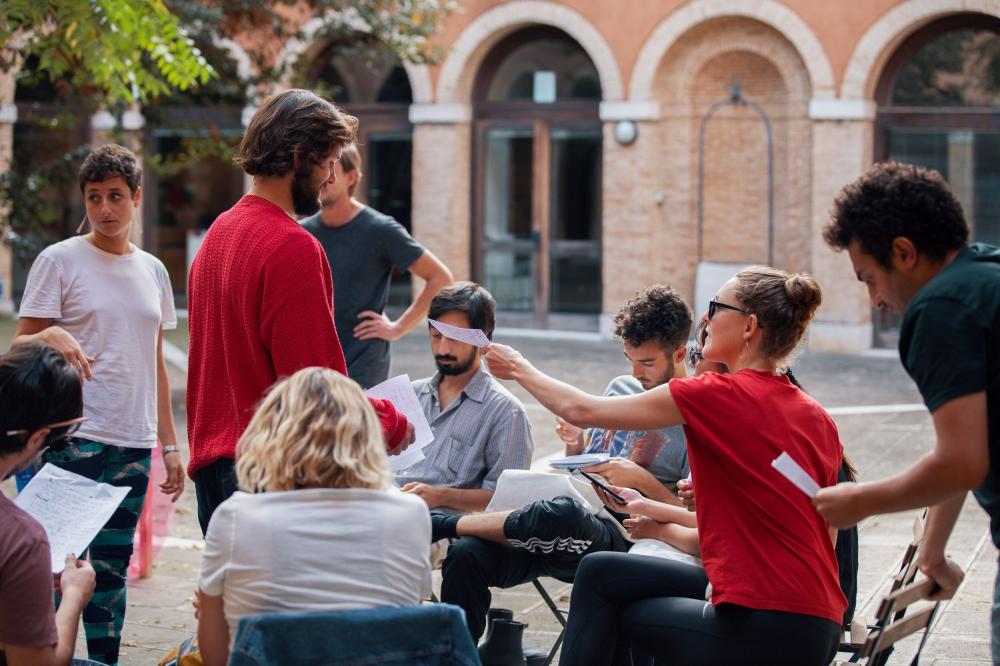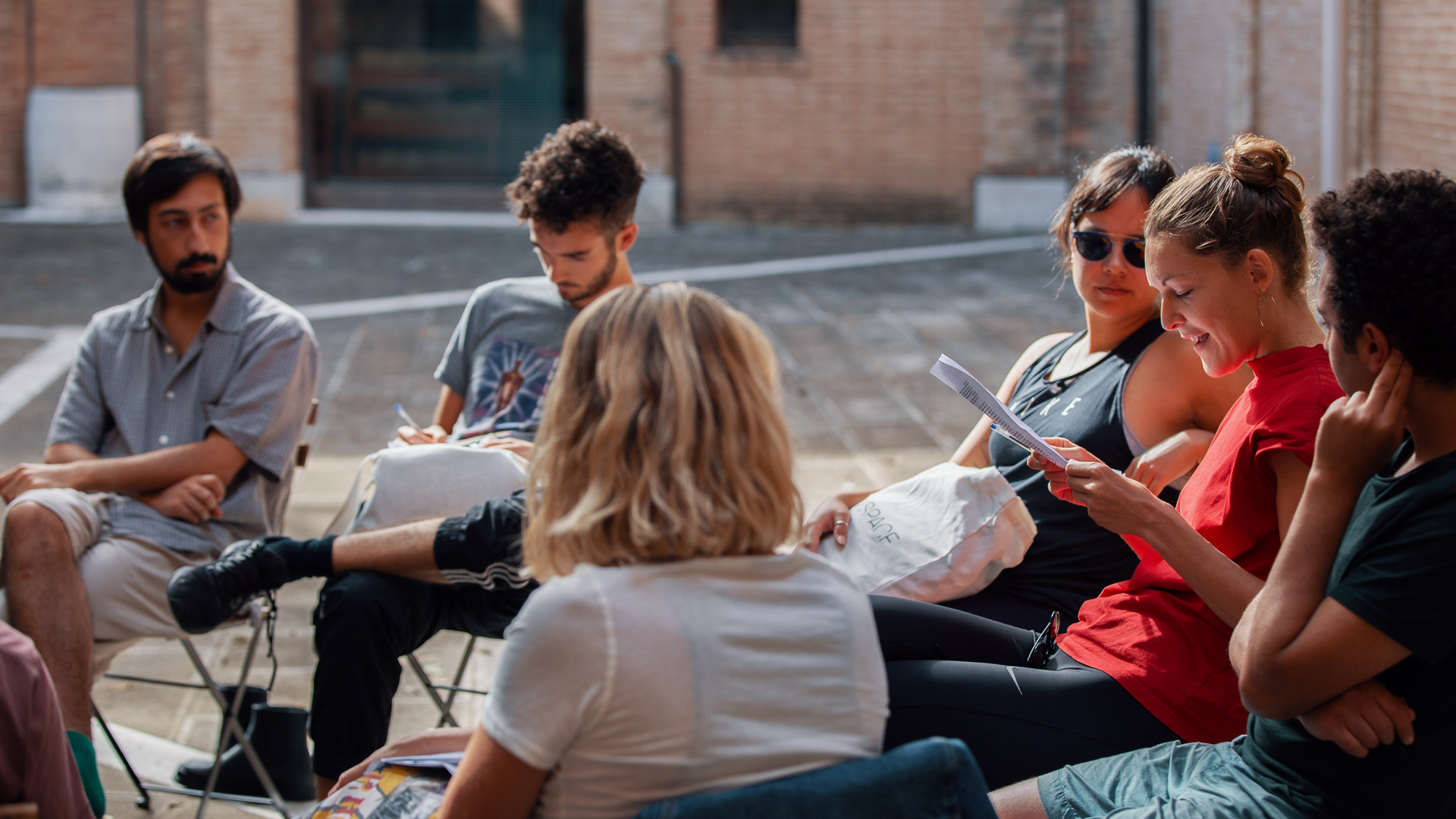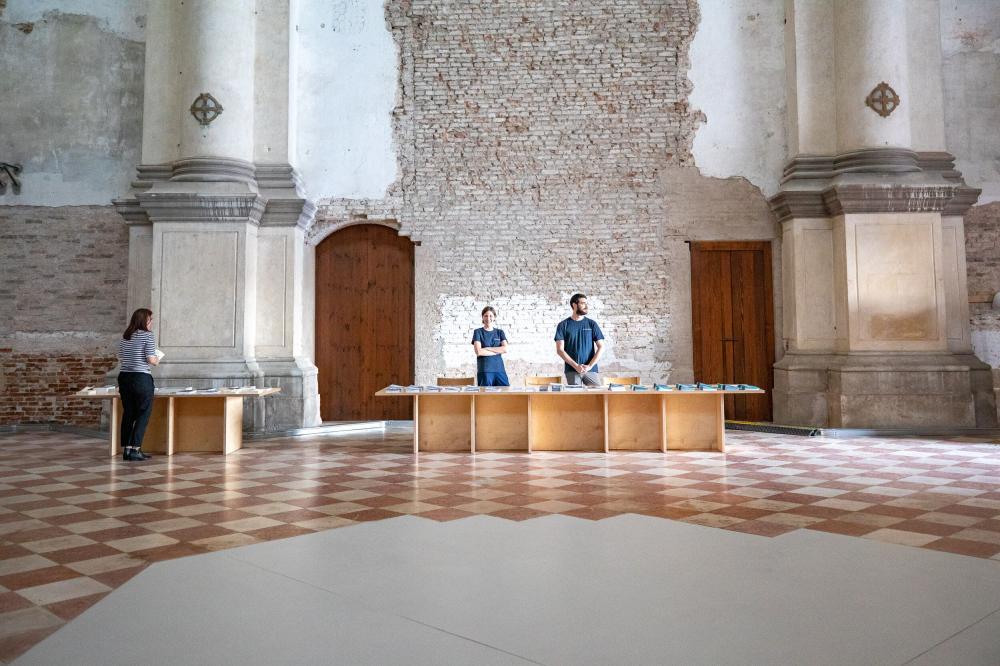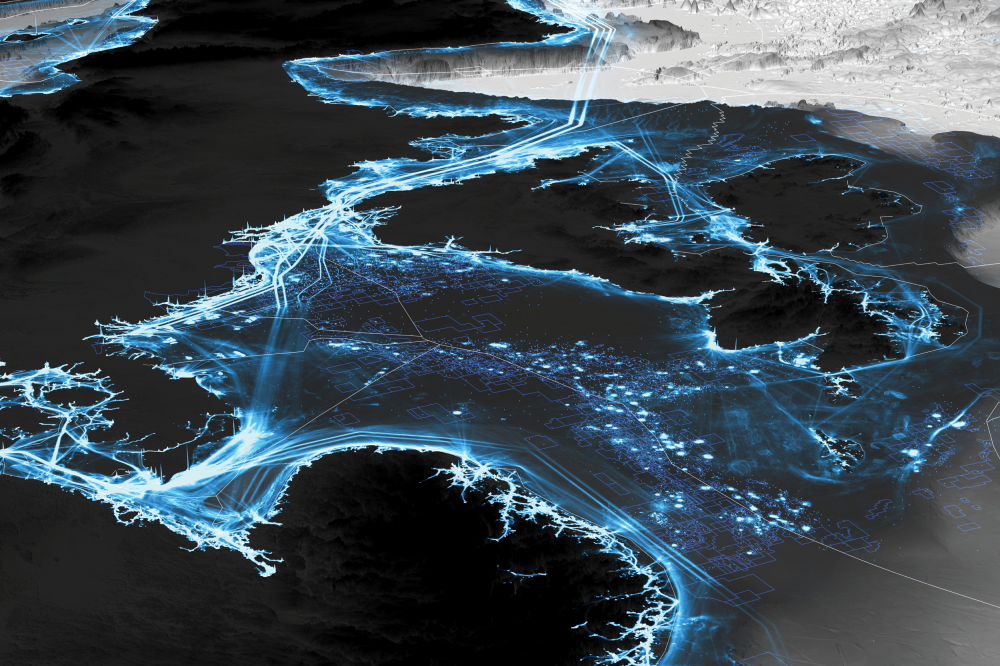Launched in 2020 by
TBA21–Academy in conjunction with
“Territorial Agency: Oceans in Transformation”, an exhibition curated by Daniela Zyman, the
Ocean Fellowship is a three-month residential research program held at
Ocean Space. Eight fellows and two mentors are invited to Venice to conduct research and participate in the
Ocean Curriculum in relation to the exhibitions at Ocean Space. The paid Fellowship supports participants to work at novel knowledge and practice intersections on and with the oceans in a time of climate and ecological emergency.
For this program, TBA21-Academy hosts scholars and practitioners from across disciplines to convene for a short but intense period of co-research and development on Oceanic topics. It reflects the Academy’s long-standing practice of mobilizing art and science to promote ocean literacy, advocacy, and action. Crafted through a wide network of scientists, arts practitioners, activists, and collaborators, the Ocean Fellowship fosters critical discourse and imaginative possibilities around the current status and future of the oceans in a perilous moment.
In the course of the global pandemic of COVID-19, the first Ocean Fellowship, initially conceived to take place in Venice from March 2020, has been translated into a series of online components and programs featured on
Ocean Archive. This open access online archive and learning platform, initiated by TBA21–Academy, hosts the digital manifestation of the exhibition “Territorial Agency: Oceans in Transformation”.
CURRENT PROGRAMThe Ocean Fellowship unfolds over three months through a unique and undisciplined Ocean Curriculum. The program strives to ferment rigorous but disobedient knowledge and ‘deep learning’ to grapple with transformations acting upon the Oceans in the so-called Anthropocene, the current period of Earth’s history defined by abrupt environmental changes triggered by human activities. Oceans play a fundamental role in driving the biogeochemical cycles that control climate, so that it’s crucial to conceive new ways for making evident their radically changing conditions, often ignored, or voluntarily removed from the public sphere.
This Ocean Curriculum flows from and feeds into the annual exhibition program “Oceans in Transformation” by Territorial Agency. Through direct engagements with Territorial Agency, Fellows are immersed in the research and materials behind the artistic production. As a mode of learning, the program presents Fellows with the opportunity to theorize, trace, and publicly mediate the art-science commissions developed by the TBA21–Academy.
Proceeding along a supported but horizontal structure, the Curriculum drifts in, around, and through the “Oceans in Transformation” exhibition in ways that clarify the Fellowship as novel pedagogical art-science practice. By contributing to and expanding on the knowledge and discourses of the exhibition, the Fellowship inverts the roles of mentors and student; artist and viewer. Fellows have the opportunity to interface with and draw from every element of TBA21–Academy’s curatorial, research and institutional program, which is instrumentalized as an evolving knowledge resource and experimental laboratory.
During the program, Fellows engage in activities of sharing and mediating across various formats, such as internal conversations, reading groups, fieldwork and archive research, public presentations, multimedia productions and interactions with the public. Fellows also contribute to and co-organize Messy Studios—a series of meetings and summits conceptualized by Territorial Agency, where ocean thinkers and practitioners from different fields discuss direct solutions, unfolding the respective territorial and disciplinary boundaries and engaging the public directly. Alongside these collaborative activities, Fellows are guided in the development of their own individual research agendas and introduced to institutions, associations, and professionals that are relevant to these in Venice and internationally. Ocean Fellows are encouraged to contribute short essays, writings, visuals or other forms of content—charting the progress of their research on to the Ocean Archive—such that the inputs and outputs of the Fellowship form sedimentations upon which future cohorts will build and develop.
FELLOWS
Alexandra Boghosian is a graduate student completing her PhD in glaciology at the Department of Earth and Environmental Sciences at Columbia University. Her interest lies in the use of emerging technologies and immersive experiences in communicating and engaging with scientific data, as well as investigating the ways science, architecture, art, and design can meld to reimagine humankind’s influence on earth’s rapidly changing coastlines and landforms. Her research expands on ideas set out in the project called “Greenland Rising,” which aims to study the natural, social, and built environments of Greenland as its coasts change.
Nchongayi Christantus Begealawuh is a PhD candidate in a joint PhD program in global and area studies: peace and security in Africa at the University of Leipzig and the Institute for Peace and Security Studies, Addis Ababa University. He holds a joint Master’s degree from the above program and a Bachelor’s degree in law from the University of Buea, Cameroon. His research focuses on the African maritime space and approaches issues of maritime security, blue economy, migration by sea, climate change, and oceans from a policy angle. He is a consultant with Oxfam International; Pan Africa Programme where he has been supporting Oxfam’s peace and security engagement in Africa since July 2018.
Pietro Consolandi is an artist, writer and curator with education in political theory (MSc at the University of Edinburgh) and visual arts (MA at the IUAV University of Venice). His practice strives to blur the boundaries between these two disciplines. His recent works approach issues connected with the Anthropocene and the great climate acceleration, analyzing how late-stage capitalism critically strikes the world through chaotic action and irresponsible development. Primarily as part of the collective Barena Bianca, his practice uses art as a resistance tactic in Venice, highlighting how global networks of research and activism are essential to understand and tackle issues that are simultaneously ecological and sociological in nature.
Elisa Giuliano is a dancer, researcher, and architect. Currently working mainly as a researcher and exhibition designer, she maintains a parallel practice in architecture and choreography. Since 2018, she has been developing a research-based project on labor systems and the control of the female body. Based on a historical case study of factory labor in Italy, the project focuses on the physicality of the female workforce and the patriarchal nature of capitalism. She has also examined the role of modern architecture as a disposition to control bodies in the broader context of capitalist production. As a member of Open Design School, she was in charge of the research, exhibition design, and production for various projects in Matera, the European Capital of Culture 2019.
Ghost in the Field (GiF) germinated from pressing issues in the context of Thailand and a desire for radical connectedness. The GiF research squad aims to reconnect disciplinary, figurative, and metaphorical bonds, accumulated through a field research, into a repertoire of corporeal knowledge. Seeded with the anthropological methods (and its critique), GiF’s first endeavor delves into fishing villages in the Chana District, Songkhla Province, in the South of Thailand. Currently, the GiF research squad consists of Jeanne Penjan Lassus, Kantida Bussaba and Palin Ansusinha. It was initiated and supervised by Judha Su, supported by Ghost Foundation and OPEN FIELD.
Fiona Middleton has an academic background in geology and marine sciences and research experiences across oil and gas, shipping pollution, and maritime law, with a broad scientific and technical understanding of marine processes and industry. Critical geography serves her as an inspiration for contemplating readings of oceanic space in regard to how we live with, manage, and value it. Middleton holds a Master degree in geology and is currently completing her second MSc in marine sciences. Her thesis research has focused on materiality, volume, and scale at the deep seabed through the lens of deep-sea mining, however, she is equally interested in exploring the land-sea binary and the life of human infrastructure at sea.
Joe Riley is an artist, researcher, sailor, and PhD student in art history and art practice at University of California San Diego, where he also participates in the program for interdisciplinary environmental research at the Scripps Institution of Oceanography. His work considers how the oceans have long been a source of cultural and visual techniques that mediate the co-production of human and nonhuman worlds. Riley holds a BFA from Cooper Union (2013) and has taught at the Cooper Union School of Art, Stevens Institute of Technology, and Bruce High Quality Foundation University. His collaborative work with the collective Futurefarmers has exhibited widely, including Artes Mundi 7 (2016) and the Sharjah Biennial 13 (2017).
Pietro Scammacca holds a BA in art history from Goldsmiths, University of London and has completed his MA in global conceptual art at the Courtauld Institute of Art. His thesis focused on notions of animality in conceptual art in Italy. His research interests revolve around posthumanist studies and critical ecologies, in particular new materialist philosophies. He is the founder of UNFOLD, a nonprofit cultural organization based in Sicily which aims to rearticulate Baroque culture through artistic projects.


























